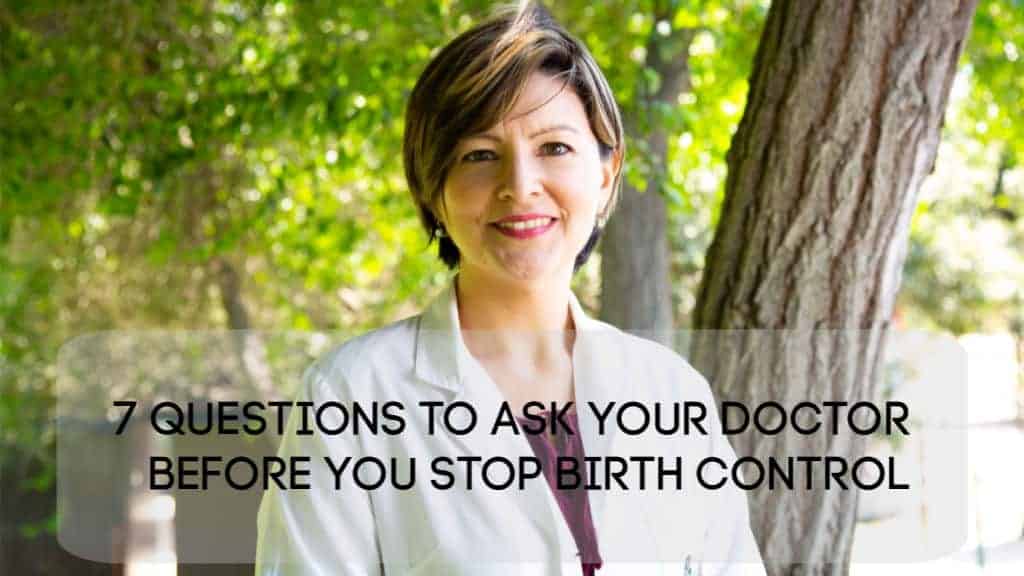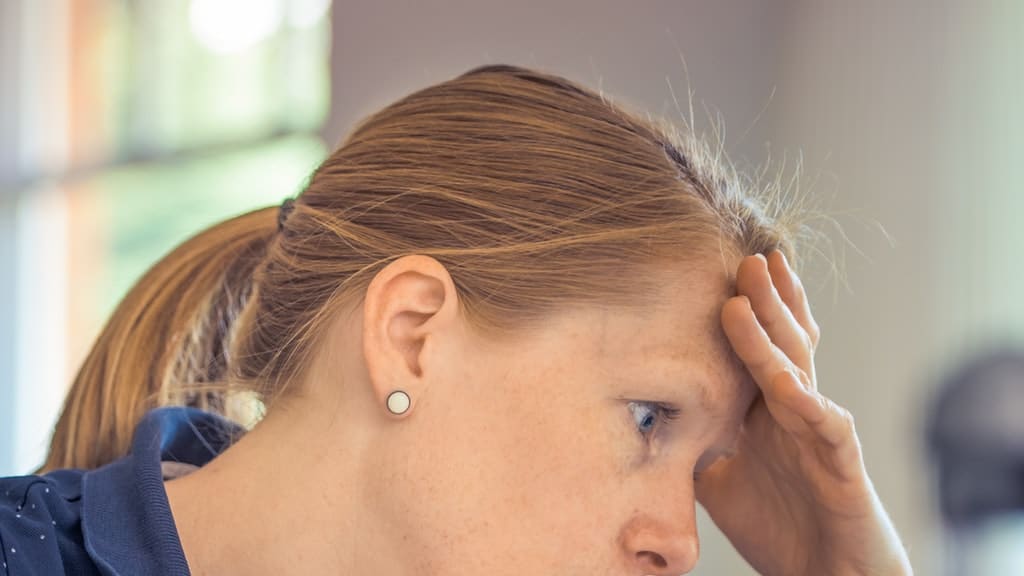Okay, so you’ve decided that it’s time to quit your birth control pills. Maybe you’ve decided to have a baby, or perhaps you’re tired of paying out-of-pocket (for something that should be covered by health insurance!). Regardless of your reason for saying “adios” to “the pill,” it behooves you to take the proper precautions and discuss the decision with your doctor.
As not every person reading this article is familiar with BC pills, we are going to discuss a bit about what they are, what they do, and their benefits and drawbacks. Finally, we’ll list seven questions every woman should ask her doctor before stopping birth control.
We’ll begin by asking the question, “What are birth control pills?”
While some women may roll their eyes at such a question – some are not as familiar on the ins and outs of B.C. pills. And of course, a bit more information never hurt anyone!
What are Birth Control Pills?
For those not too informed about birth control pills, here’s the dilly:
As the name implies, birth control pills are designed to prevent pregnancy. Some women take the pill for other reasons – including acne, heavy menstrual bleeding, and period abnormalities. There are two primary types of birth control pills, combined and progestin-only (“mini-pills.”) We will briefly talk about each type.
Combined pills
Combined pills contain the hormones estrogen and progestin, a hormonal combination that creates two means of pregnancy prevention: preventing egg release from the ovaries and altering the consistency and physiology of cervical fluids and lining of the uterus, respectively. Containing 21 pills, combined birth control is taken daily for three weeks with one week off. Combined pills are designed to prevent pregnancy even during the week in which they are not taken.
Progestin-only pills
Progestin-only pills are precisely that – they contain only the hormone progestin. As these pills do not contain estrogen, there are no changes to the ovaries’ ability to produce fertile eggs. Progestin-only pills work by physically and chemically preventing the egg fertilization. Progestin-only pills come in a pack of 28 and must be taken every day at the same time. (1) Unlike combined pills, there is no “guarantee.”
Birth Control Pill Uses
Besides preventing pregnancy, birth control pills are prescribed for:
- Irregular or heavy menstrual periods
- Menstrual cramps
- Acne and other hormone-related skin conditions
- Premenstrual syndrome (PMS)
- Hormone replacement therapy
- Diagnosed medical conditions, including Polycystic Ovary Syndrome (PCOS) and endometriosis
- Excess hair growth
- Regulation of menstrual periods (2)
Prescription for BC pills may be given for other off-label uses at the discretion of the physician. Currently, BC pills are only attainable with a prescription.
Safety and Effectiveness
For the most part, birth control pills are a very safe method of preventing pregnancy. The tablets are also quite useful, with a success rate of over 99 percent when taken as prescribed.(3) Even when not taken as prescribed (“every day, at the same time”), most contraception pills cite an effectiveness rate of higher than 90 percent.
But what about when you stop taking birth control? Considering that the pill is designed to alter the chemical makeup of female hormones, it must be clearly stated that complications may arise. Although the reported cases of after-use birth control complications remain rather small, it is nonetheless vital to seek the advice of a qualified medical professional.
The Seven Questions
With all of this in mind, here are seven questions to ask your doctor before you stop birth control:
1. What other types of contraceptives are available?
If you don’t want to get pregnant – which can happen very quickly after stopping the pill – it is necessary to seek an alternative method of contraception. If you’ve taken the pill for a long time, you may not know the contraception market has grown – as has the means of birth control.
There are no fewer than 20 different birth control options, including some that serve as a “permanent” solution, called “Long-active reversible contraceptive methods,” or LARC. Given the various choices, speaking with a specialist, such as a gynecologist, may be your best bet.
2. Do I need pre-conception counseling?
The U.S. Department of Health and Human Services (HHS) recommends at least one ‘Well-woman” visit to your doctor each year. In addition to serving as a means of preventative care, the appointment is a good time for women to discuss their health goals, including trying for a baby.
Pre-conception counseling involves risk assessment, health education, and recommendations for a healthy conception. Per many health experts, pre-conception counseling increases the chances of conception while lessening the likelihood or complications during the early stages of pregnancy.
For U.S. citizens, all preventative health care, including well-woman visits are covered under the Accordable Care Act.
3. Will my symptoms come back?
If you are taking BC pills for off-label uses like acne or heavy menstrual bleeding, it is essential to ask your doctor their opinion whether your symptoms might return. It is worth noting that many symptoms do return following the cessation of BC pill usage.
Your doctor will likely analyze your medical charts and do a quick checkup before giving you their educated opinion. It is very possible that they will offer a “maybe,” and advise you to return if the symptoms return.
4. Will I lose weight?
The physiological mechanisms that make BC pills effective may also cause weight gain. Research shows that medicines with a higher concentration of estrogen may cause weight gain and water retention. Stopping BC pills, then, may cause some weight loss due to the release of water weight.
Again, your doctor will probably consider your medical chart and history before giving their opinion. Studies show that people gain an average of 4 to 5 pounds after 6 to 12 months of progestin-only pills (there is currently little scientific evidence that combined pills cause weight gain.) As such, your doctor may recommend a return visit if weight loss occurrence exceeds this benchmark.
5. What irregularities will I experience?
Here, again, are the effects of hormonal changes following the stoppage of BC pills. Physical anomalies are usually minor, and may include:
- Return of acne or unwanted hair
- Increased sex drive
- Cramping and twitching of the pelvis
- Vaginal discharge
- Irregular periods (usually for no longer than a few months)
- Cramps and heavy menstrual bleeding
- The return of PMS
6. How long does it take to get pregnant?
This is a big one that demands attention. Many women who come off birth control think that they’re protected against pregnancy – at least for a little while. The truth is that, theoretically, a woman can get pregnant as soon as she has sex with no BC usage.
Research shows that half of women get pregnant within six months after stopping birth control – and 96 percent of women got pregnant within a year! The bottom line? Don’t think that you’re immune to getting pregnant just because you recently took birth control. While it may be more difficult to conceive immediately following BC use, you are by no means invulnerable to pregnancy.
7. How will this affect my cycle?
Many women find that their periods after birth control seem abnormal. As mentioned, changes to the hormones estrogen and progestin may lead to menstruation anomalies. This is particularly the case if you took BC pills for correcting period irregularity (a popular off-label use).
The hormones included in the pill are known to regulate a woman’s cycle. For example, the woman may discover that her periods occur within the same short time frame every month while on this pill. Once off the pill, period irregularity may occur. It is also important to know that it’s not especially uncommon for periods to nearly completely stop for the first few months after stopping the pill.
Final Thoughts on Questions to Ask before Stopping Birth Control
While rare, it is possible to experience one or more mildly-severe health problems following the stoppage of birth control pills. Some doctors call it Post Birth Control Syndrome, or PBCS.
“PBCS” is usually experienced as a set of symptoms, including:
- Acne
- Amenorrhea (absence of menstruation)
- Digestive problems
- Fluctuations in body composition
- Immune system irregularities
- Hair loss
- Hormonal complications
- Mood disorders
To correct these and other symptoms, some health experts recommend a natural approach (as opposed to getting back on the pill.) Some of the recommendations are:
– Consuming probiotics (e.g., kefir, oats, sauerkraut, yogurt) or taking a probiotic supplement.
– Eating at the same time, every day
– Eating plenty of dark leafy greens, nuts, and fresh fruits and vegetables.
– Getting plenty of rest and sleeping at the same time (to reset the circadian rhythm.)
– Managing and reducing stress whenever possible, and scheduling time to get away and relax.
– Restricting sugar and starch intake
– Supplementing magnesium glycinate
– Taking a high-quality multivitamin
If you are experiencing severe health complications following the stoppage of birth control pills, please contact your physician or visit the nearest emergency room.
Sources:
https://drbrighten.com/stopping-birth-control-side-effects/















 Community
Community

